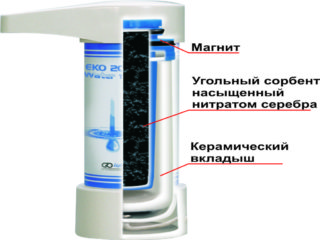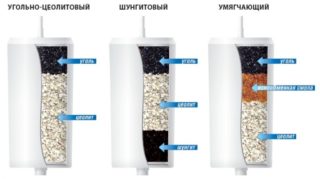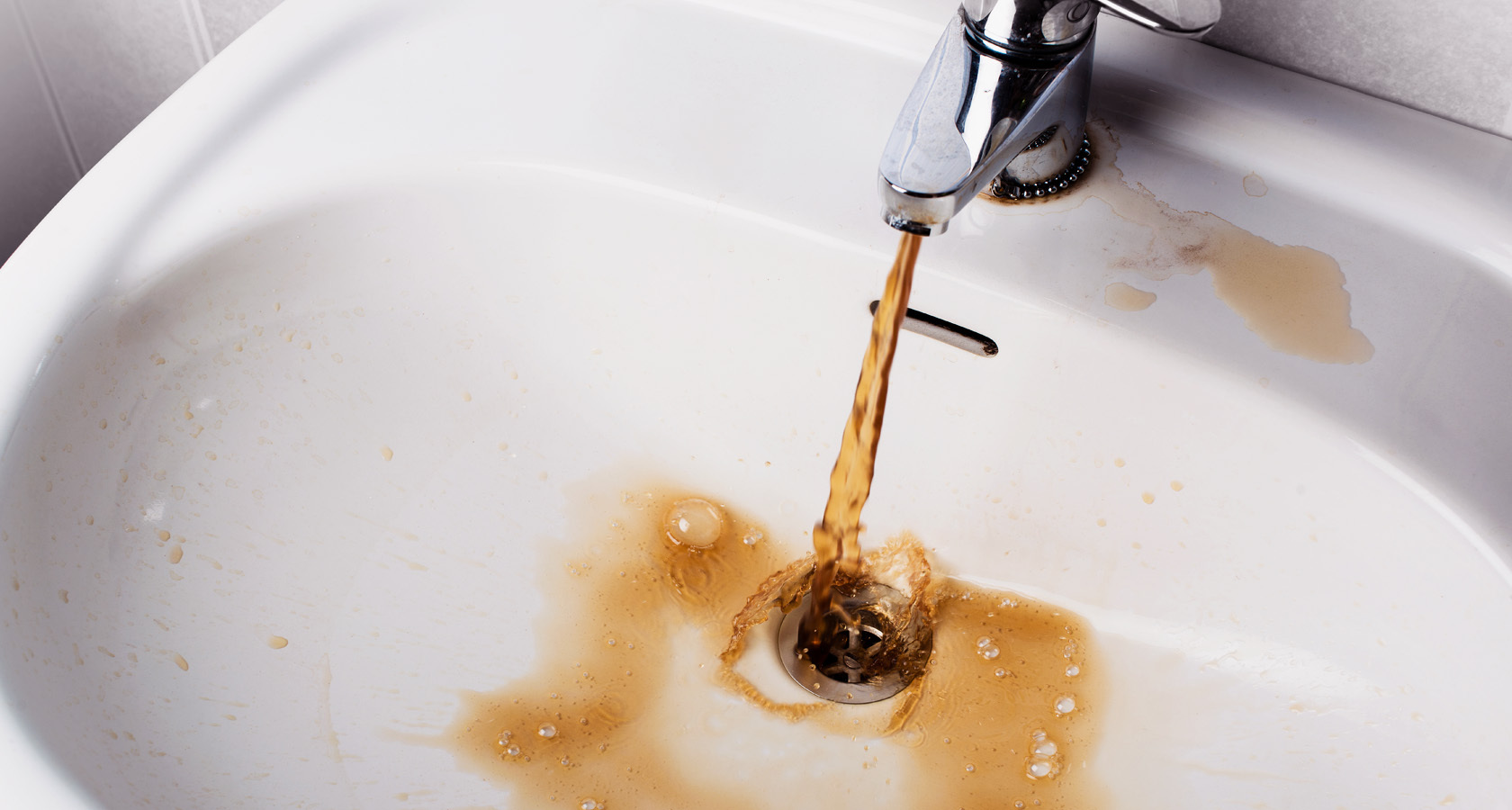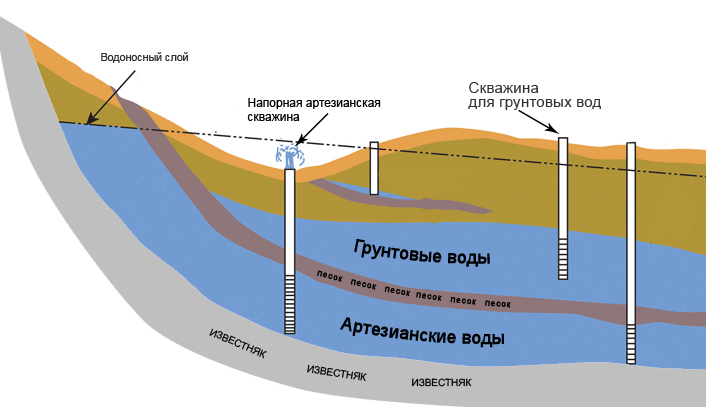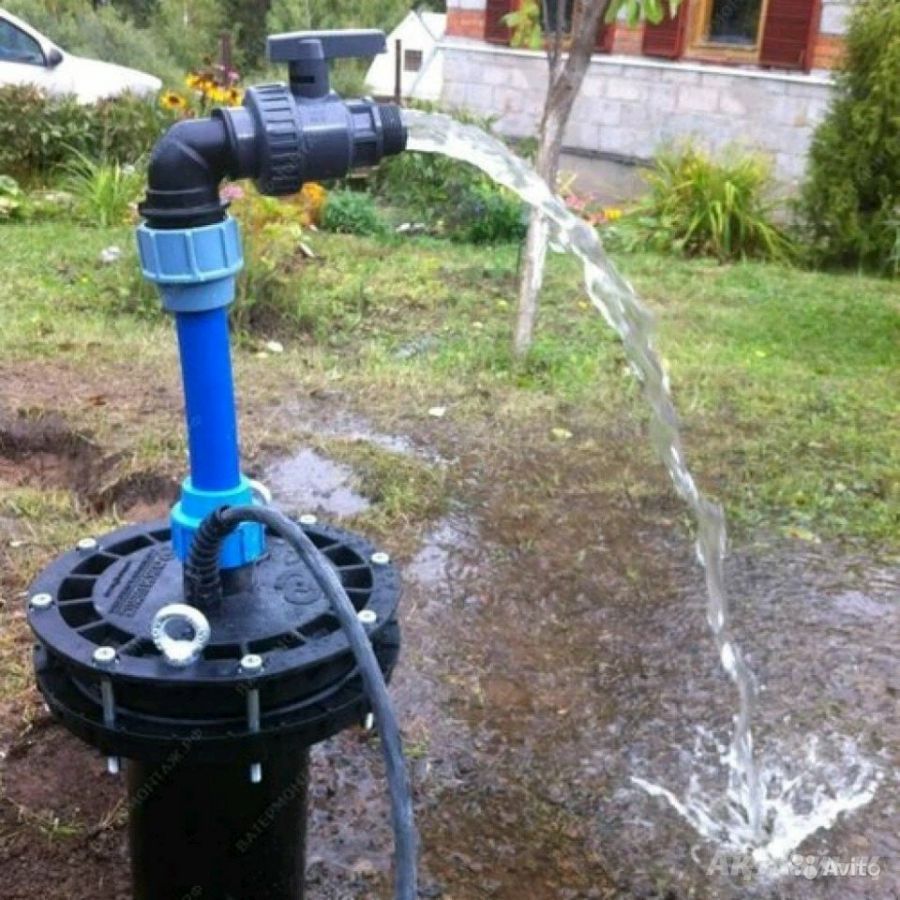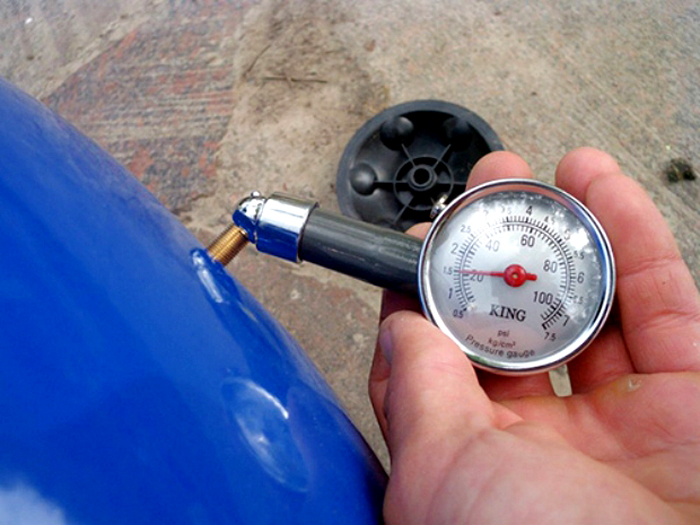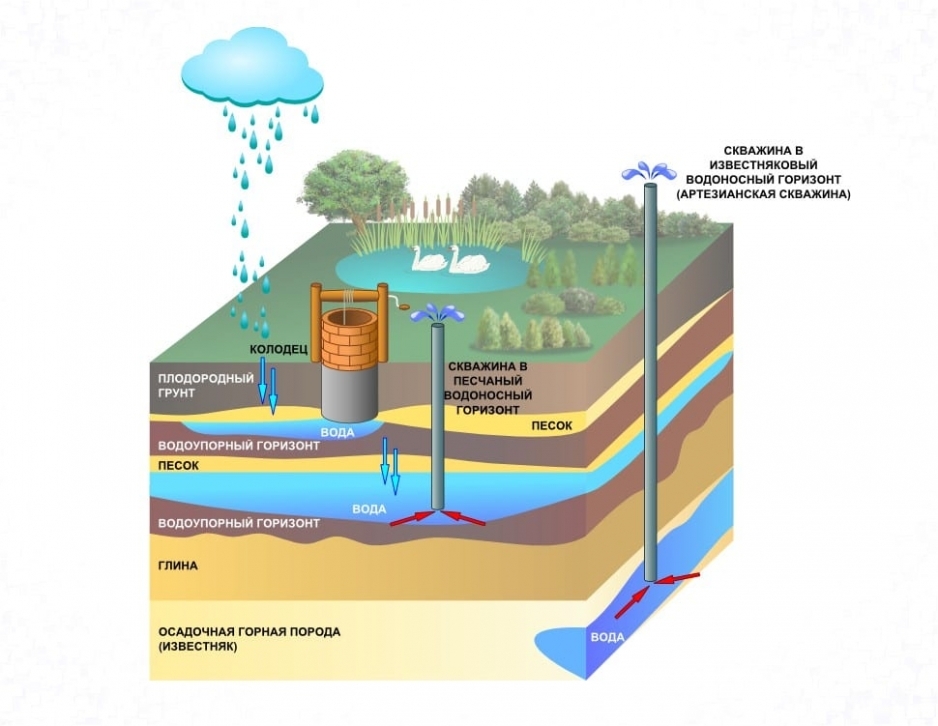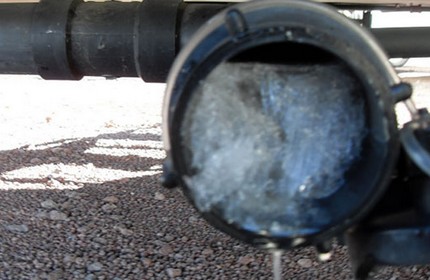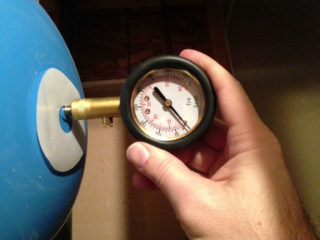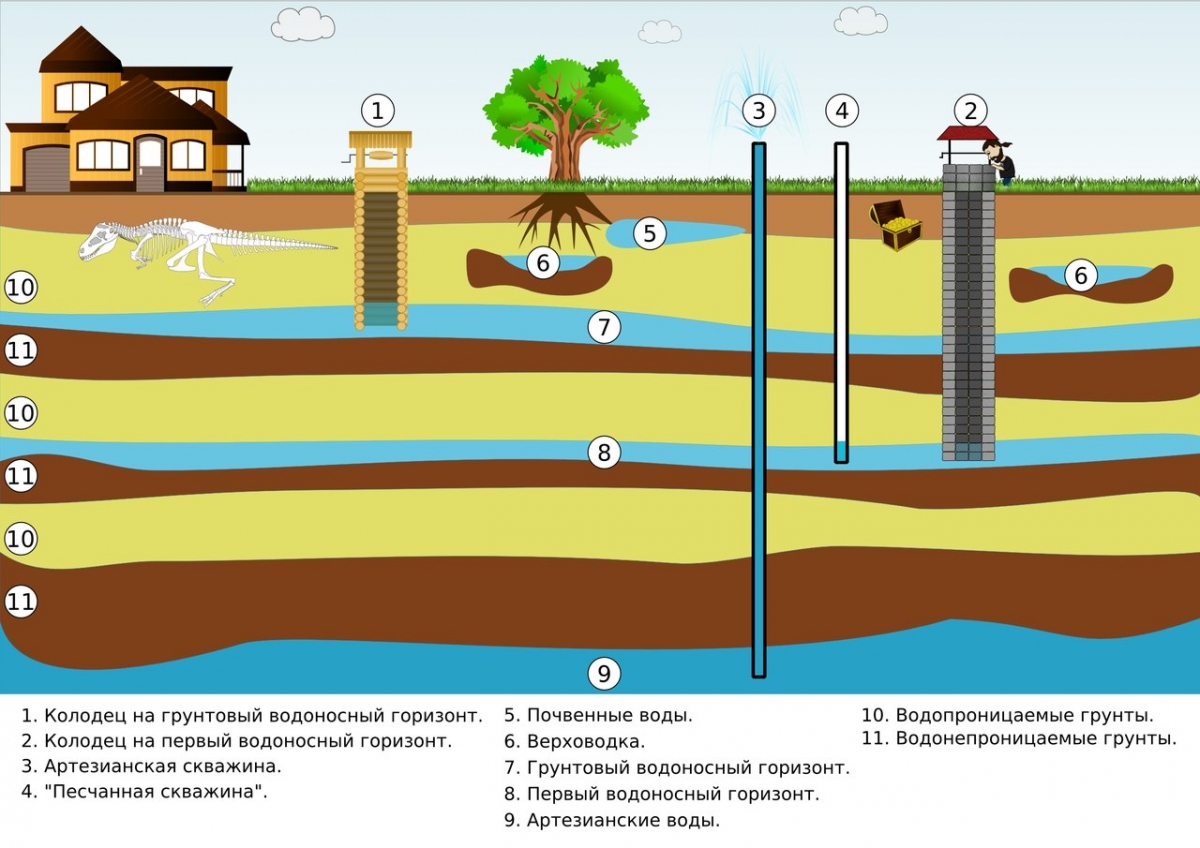Tap water requires high-quality post-treatment. For this purpose, different settings are often used. One of the most popular is the flowing carbon filter for water. When the liquid passes through it, all the impurities dissolved in the medium are adsorbed. Moreover, viruses, bacteria, and organic matter are also removed from the treated water.
Purpose and scope
- home use (post-treatment of tap liquid);
- wastewater treatment for VOCs;
- water treatment before supplying the resource to the highway;
- cleaning liquid in aquariums.
For industrial purposes, coal-based installations are rarely used, since the backfill cannot cope with large volumes of the treated medium and requires frequent replacement.
Types of filters, principle of operation and device
The basis of the carbon filter is granules of the following substances:
- activated charcoal - helps to remove chlorine, suspended particles, ozone, fats;
- aluminum silicate - removes colloidal particles;
- coal - fights phenols, pesticides, odors;
- coconut charcoal - removes organic matter, chlorine from water, improving its quality characteristics;
- natural zeolite - works against heavy metals and bacteria, can be used for hot water;
- copper zinc - also functions at all temperatures, fights against bacteria and suspended solids;
- polyfunctional aluminosilicate adsorbent - removes phenols, chromium, metals from liquid.
A properly filled charcoal filter purifies the water by 98%.
- Flowing. The simplest and most unpretentious filter. Installed directly on the crane. Its productivity is approximately one glass / minute.
- Sorption. It is a carbon-filled polymer flask. On sale there are hollow cartridges, into which you can pour the filter layers of your choice, and ready-made cassettes. Such full-fledged carbon cartridges for water purification filters are used in Aquaphor or Barrier jugs.
- Stationary installations. The most complex, costly and yet effective. After treatment with such a filter, water is supplied to a separate tap. An example of such coal systems is the Geyser unit.
Each of the systems fully copes with its task, but requires regular maintenance - replacement of the adsorbent filling or cartridges.
Criterias of choice
You need to choose carbon filters for your home according to the following criteria:
- Estimated volume of the processed medium. For the preparation of drinking water for a family of 3-5 people, a flow-through device will not be enough. And for a summer cottage, operated in the summer season - the very thing.
- The level of contamination of the processed medium. If it is just tap liquid, it is more profitable to put a regular jug. If this is a water supply from a well or a well, it is better to mount a full-fledged installation under the sink with a separate tap.
- The size of the granules of the coal backfill. The smaller it is, the faster the layer will clog. Moreover, the better it cleans the liquid from suspended matter and dissolved impurities.
- Backfill type. Its various variations are aimed at combating impurities of iron, chlorine, increased hardness, etc.
It will be useful to pay attention to the brand and the final cost of the equipment.In addition, it is advisable to take into account the costs of maintaining the system and the presence of a service center in the region if it is planned to install a full-fledged multi-stage main filter.
Installation features
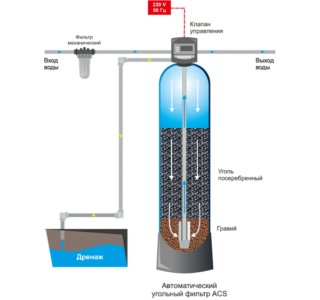
When installing a coal filter system, you need to take into account the following nuances:
- The equipment must not be installed on the hot water system and near heating devices. High temperatures reduce the efficiency of the adsorbent bed.
- It is not recommended to exceed the pressure in the pipeline. The optimal indicator is up to 8 atm.
- It is necessary to provide access to the unit in order to change replacement cartridges on time.
- There must be good ventilation in the installation area of the filter system, and the humidity level should not exceed 70%. If this indicator is higher, the filter bed will not fulfill its functions.
To avoid the presence of small particles of coal in the water, you can additionally install a coarse filter. But this is optional.
Installation of an activated carbon filter is performed as follows:
- An additional hole is made at the base of the sink for the outlet of the tap to the treated water. This can be done with a drill. The hole diameter is made no more than 13 mm.
- A tap is mounted in the prepared hole.
- A clamp support is installed on the drain pipe under the sink. It should be located above the water seal and coincide with the opening of the drain tube.
- It is necessary to process the threads with a Teflon sealing tape and mount the accumulator.
- It remains to fix the valve in the tank.
It is better not to use the first water passed through the filter. It is advisable to spill at least 5-7 liters of liquid through the system and only then eat or drink it.
If a filter is mounted using a diverter, you just need to switch it to the desired position. In this case, the liquid will either go through the coal bed, or immediately flow into the water tap.
Operation and maintenance
When the charcoal filter is in operation, be it a jug, nozzle or complete system, the backfill gradually clogs up. Replacement of the cartridge is required to restore the cleaning ability of the equipment. On average, the life of a polymer flask is about 2 months. Often the manufacturer gives recommendations on the optimal period of use of the filter, depending on the volume of water passed through it. It is worth sticking to these values.
Automatic installations can operate without replacing the backfill for up to 2 years.
Filters cost
To purify water with activated carbon at home, you can purchase the following installations:
- Trunk "Aquatek" - from 2,485 rubles. and above (reverse osmosis systems from 7,000 rubles);
- jugs "Barrier" and "Aquaphor" - price from 350 rubles.
- system "Geyser" - from 4 870 rubles.
Regardless of the chosen method of liquid purification using activated carbon, water that has passed all levels of adsorption filtration is suitable for safe use.

